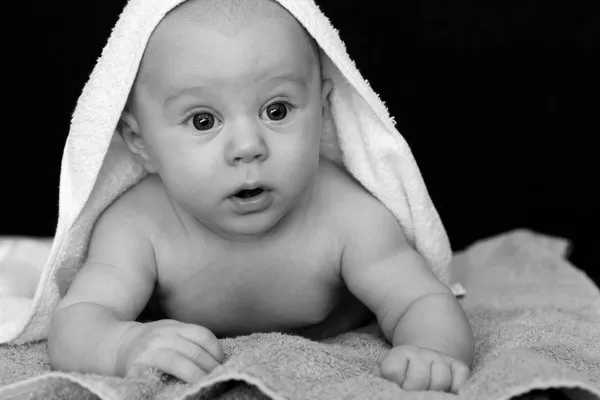In the realm of parenting, few things are more heartwarming than witnessing your newborn’s first smile. That enchanting little curve of their lips can melt even the coldest of hearts. However, as a parent, you might be wondering, “At what age do newborns smile?” In this comprehensive guide, we will delve into the fascinating world of infant development to answer this question and explore the significance of those early baby smiles.
1. The First Glimpse: When Do Babies First Smile?
Your baby’s first smile, also known as the “social smile,” is a momentous occasion in their early development.
Typically, infants start to display their first smiles between 6 to 8 weeks of age. This is when they become more socially interactive and responsive to stimuli.
The social smile is a genuine and heartwarming response to a parent’s or caregiver’s face, voice, or playful interactions.
By this age, your baby’s visual and social abilities have matured, allowing them to engage with the world in a new way.
2. Delving into the Science Behind Newborn Smiles
Understanding the science behind newborn smiles can provide insights into your baby’s developmental progress.
At around 6 weeks, your baby’s brain undergoes significant changes, with the limbic system playing a pivotal role in their emotional responses.
When your baby smiles, it releases endorphins, which promote bonding and positive emotions between the baby and the caregiver.
These early smiles are an essential part of a baby’s emotional and social development.
3. Different Types of Baby Smiles
It’s essential to recognize that not all baby smiles are the same. Understanding the types of smiles your newborn displays can provide valuable insights into their emotional state.
Social smiles, as mentioned earlier, are genuine smiles in response to social interaction.
Reflex smiles, on the other hand, are involuntary and typically occur when your baby is in a state of deep sleep. These early smiles are adorable but unrelated to their emotional state.
Identifying the type of smile your baby displays can help you gauge their responsiveness and well-being.
4. Encouraging Baby Smiles
While every baby is unique, there are several ways to encourage and witness those enchanting baby smiles more often.
Maintain eye contact with your newborn during feeding and playtime. Babies often smile in response to their caregiver’s gaze.
Talk, sing, and coo to your baby. They are drawn to the sound of your voice, and this interaction can trigger those precious smiles.
Gentle tickles and soft touches can also elicit smiles from your baby.
Be patient and understanding; not all babies smile at the same rate, and some might be more reserved in their expressions.
5. The Significance of Early Baby Smiles
Baby smiles are more than just a source of joy for parents; they serve vital developmental purposes.
Early baby smiles strengthen the emotional bond between the baby and caregiver.
These smiles encourage positive interaction and communication, laying the foundation for healthy social development.
The joy and warmth you experience when your baby smiles are nature’s way of reinforcing the caregiving relationship.
6. When to Be Concerned About Baby Smiles
While most babies start smiling around the 6- to 8-week mark, there can be variations.
If your baby has not shown any signs of a social smile by three months, it’s advisable to consult your pediatrician. Delayed smiling can sometimes be an early indicator of developmental issues.
Additionally, if your baby displays a lack of responsiveness, avoids eye contact, or rarely smiles, professional guidance may be needed to address potential concerns.
In conclusion, the moment your newborn offers their first smile is a cherished memory for any parent. This heartwarming milestone typically occurs between 6 to 8 weeks of age and signifies your baby’s developing social and emotional abilities. Understanding the science behind these smiles and their various types can help you connect with your baby more deeply.
By encouraging smiles through loving interactions, you play a crucial role in your baby’s emotional development. However, if your baby exhibits delays in smiling or displays concerning signs, it’s essential to seek professional guidance to ensure their well-being. Baby smiles are not only delightful but also an essential part of your baby’s developmental journey. Cherish these moments, for they are the building blocks of a loving and healthy parent-child relationship.


